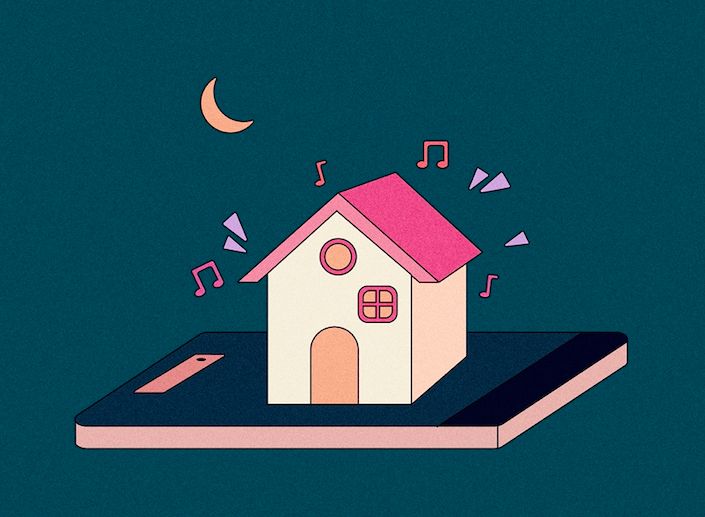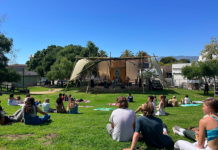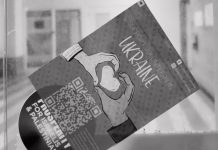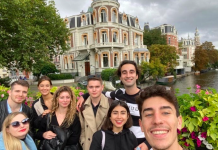Hailey Hill
Science and Technology Editor
UC Santa Barbara (UCSB)’s neighboring community of Isla Vista (I.V.) has a long-standing reputation of having a consistently strong party scene; rarely a weekend passes without Del Playa (D.P.) Drive and neighboring blocks being swarmed by college students in search of the night’s biggest parties. In our ever-evolving digital age, it was only a matter of time before an app attempted to streamline this experience.
Poppin’, “The Party Platform,” is an app designed to centralize the college party experience by giving users the ability to organize, promote, or find parties on a single platform. Those hosting a Poppin’ party have the option of requiring an RSVP from partygoers, who then get a QR code to be checked upon entrance to the event. Additionally, users can message others on a party’s guest list, post photos and videos to a specific party’s album, and leave comments about parties they attended. Poppin’ has been launched in several college towns throughout the country but has only reached UCSB’s own off-campus community in recent weeks.

The concept of Poppin’ sounds fairly straightforward and beneficial for both hosts and partygoers; the chaos of managing and getting into an event could potentially be minimized with such a design. However, certain repercussions have surfaced with increased accessibility. Though Poppin’ parties, like most events in I.V., are intended to attract other college students and I.V. residents, anyone can download the Poppin’ app — including people who have no affiliation with the university at all.
Early users of the Poppin’ app in I.V. have expressed such concerns after attending the first few “Poppin’ parties.” Justin Pekari, a resident of I.V., described the two Poppin’ parties he and his friends attended as “odd.”
“The crowd just felt weird,” Pekari recalled in an interview with The Bottom Line (TBL). “There was a man on a die table next to the DJ, at least 30 years old, getting danced on by some teenage girl…the crowd just seemed kind of off compared to a typical I.V. function.”
Aside from the noticeable difference in crowd demographics, Pekari also claimed that getting into the party with the QR code was more stressful than before the introduction of the app.
“The line was insane. Even though you were supposed to have a QR code to get in, people with no QR code were trying to force their way in. People with QR codes were trying to get to the front [of the line], and some guy even ripped part of my [Halloween] costume off my head and tried getting in my face,” Pekari told TBL.
A potential risk of having unknown partygoers attending events is property damage; people tend to show less courtesy to places where they don’t actually live. At the same Poppin’ party, Pekari described witnessing “a group of people [that] tried, and failed, to throw a basketball hoop off of a D.P. cliff.” He added that he didn’t recognize anyone at this party, and “it felt like the majority of the people didn’t live in I.V. or even go to UCSB.”
While the idea behind Poppin’ is full of potential, it seems like the app may not be the best fit for a community as localized as I.V., at least in its introductory stages.

















